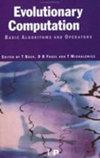无约束、约束和多目标噪声组合优化问题的分布算法的进化和估计
IF 3.4
2区 计算机科学
Q2 COMPUTER SCIENCE, ARTIFICIAL INTELLIGENCE
引用次数: 1
摘要
我们提出了一系列应用于各种噪声组合优化问题的进化算法的实证研究。有三组实验。首先看几个玩具问题,如OneMax和其他线性问题。我们发现UMDA和配对交叉进化算法(PCEA)是唯一能够在合理的固定时间预算内鲁棒地处理噪声的算法。在第二阶段,UMDA和PCEA然后在更复杂的噪声问题上进行测试:SubsetSum, backpack和SetCover。两者在噪声水平增加的情况下都表现良好,其中UMDA表现较好。在第三阶段,我们考虑了两个有噪声的多目标问题(CountingOnesCountingZeros和SetCover的多目标公式)。我们比较了UMDA与简单进化多目标优化器(SEMO)和NSGA-II在多目标问题上的几种适应性。我们得出结论,UMDA及其变体可以在各种噪声组合优化中非常有效,优于许多其他进化算法。本文章由计算机程序翻译,如有差异,请以英文原文为准。
Evolutionary and Estimation of Distribution Algorithms for Unconstrained, Constrained, and Multiobjective Noisy Combinatorial Optimisation Problems
We present an empirical study of a range of evolutionary algorithms applied to various noisy combinatorial optimisation problems. There are three sets of experiments. The first looks at several toy problems, such as OneMax and other linear problems. We find that UMDA and the Paired-Crossover Evolutionary Algorithm (PCEA) are the only ones able to cope robustly with noise, within a reasonable fixed time budget. In the second stage, UMDA and PCEA are then tested on more complex noisy problems: SubsetSum, Knapsack, and SetCover. Both perform well under increasing levels of noise, with UMDA being the better of the two. In the third stage, we consider two noisy multiobjective problems (CountingOnesCountingZeros and a multiobjective formulation of SetCover). We compare several adaptations of UMDA for multiobjective problems with the Simple Evolutionary Multiobjective Optimiser (SEMO) and NSGA-II. We conclude that UMDA, and its variants, can be highly effective on a variety of noisy combinatorial optimisation, outperforming many other evolutionary algorithms.
求助全文
通过发布文献求助,成功后即可免费获取论文全文。
去求助
来源期刊

Evolutionary Computation
工程技术-计算机:理论方法
CiteScore
6.40
自引率
1.50%
发文量
20
审稿时长
3 months
期刊介绍:
Evolutionary Computation is a leading journal in its field. It provides an international forum for facilitating and enhancing the exchange of information among researchers involved in both the theoretical and practical aspects of computational systems drawing their inspiration from nature, with particular emphasis on evolutionary models of computation such as genetic algorithms, evolutionary strategies, classifier systems, evolutionary programming, and genetic programming. It welcomes articles from related fields such as swarm intelligence (e.g. Ant Colony Optimization and Particle Swarm Optimization), and other nature-inspired computation paradigms (e.g. Artificial Immune Systems). As well as publishing articles describing theoretical and/or experimental work, the journal also welcomes application-focused papers describing breakthrough results in an application domain or methodological papers where the specificities of the real-world problem led to significant algorithmic improvements that could possibly be generalized to other areas.
 求助内容:
求助内容: 应助结果提醒方式:
应助结果提醒方式:


